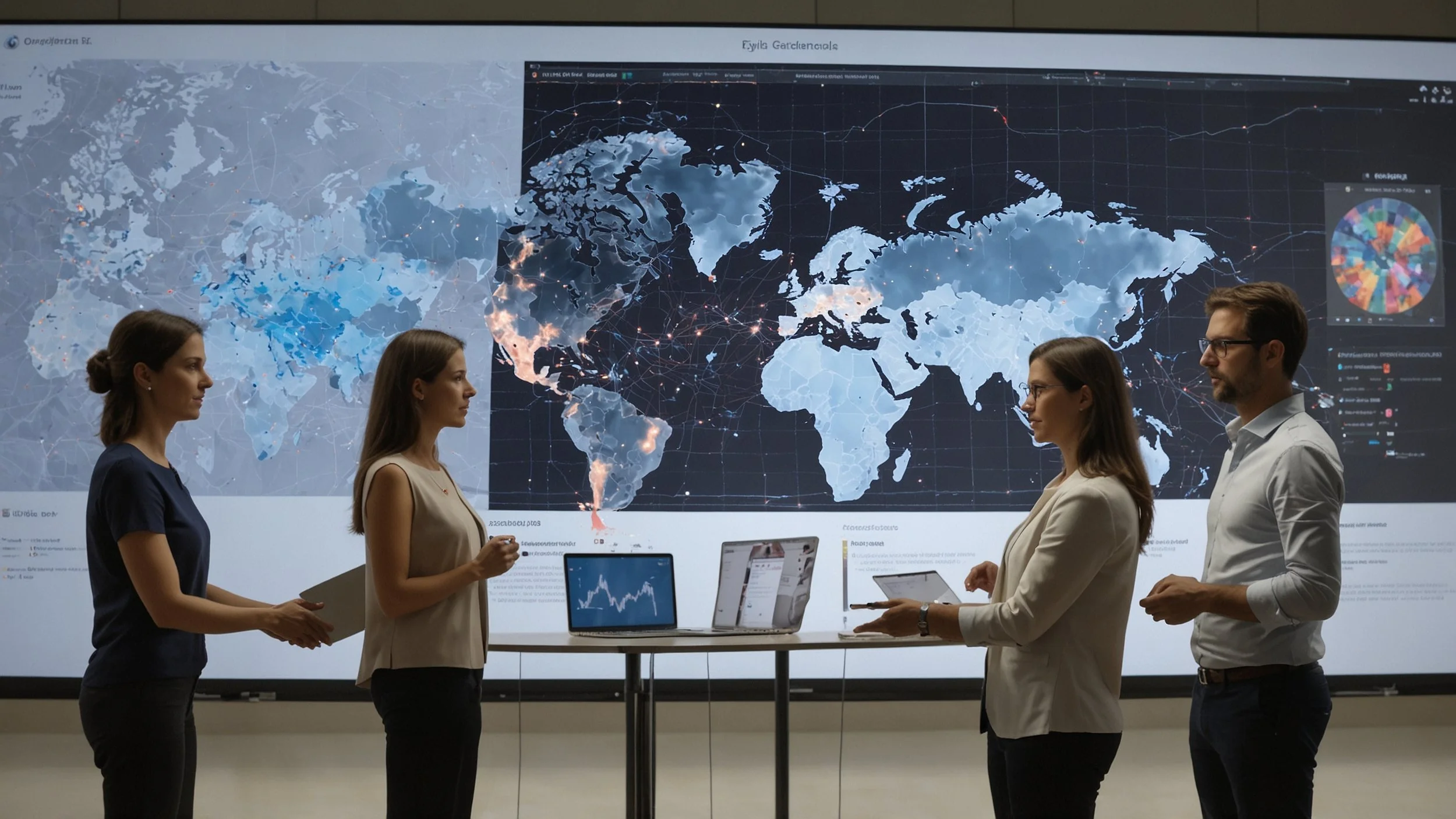The artificial intelligence revolution in business decision making
Artificial intelligence (AI) is dramatically changing the way companies make decisions in an increasingly competitive and dynamic business environment. Traditional systems, which are based on human interpretation of data, are being replaced by new models in which automation, speed and accuracy increase results. This transformation, known as decision making 2.0, is the result of a paradigm shift brought about by generative technologies and intelligent agents. Investigating this phenomenon shows how companies can improve their performance, manage risk and become more competitive in international markets.
The transition from the traditional model to decision making 2.0
Decision-making in business was based for decades on human experience and manual analysis of information, a procedure that was limited by biases and cognitive possibilities. This method, known as decision making 1.0, was based on what was believed to be "sufficient," and this led to suboptimal results. The advent of automated systems with artificial intelligence represented a turning point, as it made it possible to analyze large amounts of data and draw more accurate, faster and more comprehensive conclusions, which is essential for complex situations.
Practical applications of artificial intelligence in various sectors
The impact of artificial intelligence (AI) on the decision-making process is vast and spans multiple sectors and levels within organizations. This technology not only automates routine tasks, but also enhances analytical and predictive capabilities, revolutionizing the way companies and industries operate and respond to market challenges.
In the retail sector, AI optimizes inventory management by anticipating demand and adjusting stock levels, as well as improving marketing campaigns adapted to real consumer behavior.
In the consumer goods industries, advanced analytics provided by AI are used to manage and position brands more effectively, based on complex, real-time data.
Sectors such as banking and pharmaceuticals benefit from the personalization of financial and commercial strategies through the use of instant information, which significantly improves the customer experience.
These innovations drive a transformation in traditional organizational roles, promoting close collaboration schemes between humans and machines to take full advantage of the capabilities of both parties.
In addition, AI facilitates decision making based on predictive and prescriptive data, which reduces risks and increases operational efficiency in various industries.
Challenges and strategies for the responsible adoption of artificial intelligence.
The implementation of artificial intelligence (AI) in decision making faces several challenges that are crucial to overcome in order to take advantage of its full potential. Among these, the black box effect, i.e., the lack of transparency in how AI models reach a conclusion, and resistance to change within organizations, are the most significant.
The black box effect hinders trust in AI because users do not always understand and cannot always verify decisions generated by complex and opaque algorithms.
Resistance to change stems from legitimate concerns about the loss of control and reliability of automatic suggestions in critical processes.
To build trust, it is critical to develop in-house capabilities in AI along with the implementation of robust ethical frameworks to guide its responsible use.
Ongoing monitoring and continuous auditing ensure that systems maintain both accuracy and fairness in their decisions over time.
Strategies such as the champion-return model and the formation of multidisciplinary teams are key to ensuring that AI solutions are rigorously evaluated and adapted, thus enabling effective and sustainable integration into organizational processes.
The use of artificial intelligence in the decision-making process represents significant progress for companies wishing to adjust to an increasingly digital and connected environment. Organizations have the potential to gain competitive advantage, improve their agility and make more informed decisions if they use these technologies in a collaborative and responsible manner. The era of Decision Making 2.0 promises to change the future of business, with human-machine collaboration becoming the key determinant of success.






